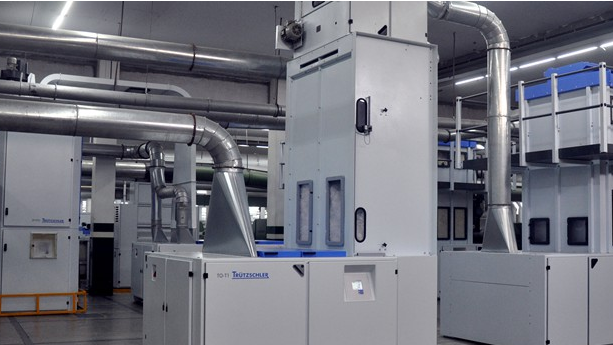“Reliable detection and removal of metallic fragments with the Uster Jossi Metal Shield is a sure way to safeguard both capital investments and profitable production of quality yarn,” says Uster.
According to Uster, sometimes metal pieces are transported and forwarded with the cotton tufts in carding stage, which results in irregularities in nep values.
This also results in damage to fine and precisely-aligned teeth of the clothing being damaged or broken off entirely and again results in downtime for the card.
“This happens most often in spinning mills which choose to target investments largely at production related equipment and not in systems to detect and eliminate metal pieces in the cotton.
“Yet, when production machines are damaged, it’s clear that efficiency and quality also suffer, two of the most important business success factors for both productivity and profitability,” Uster informs.
These metal pieces can be screws, nuts, travelers, pieces of wire or metallic bale strapping, even parts of old or badly-maintained machinery.
They find their way into the cotton in various manners; at loading and transport of the seed cotton; in the gin; or even in the spinning mill itself.
According to an Uster press release, anything carelessly dropped on the floor in these situations could be swept up and entangled with the cotton, even in the tidiest of mill environments.
“The best protection method available to a mill is to install an instrument for metal detection and elimination shortly after the bale opener, the Switzerland based testing equipment producer observes.
A daily average of 10 to 20 metal pieces is taken out of the yarn production process in this way, but the figure can sometimes reach up to 50.
That means the instrument’s diverter mechanism opens as many as 50 times a day, each time sending the raw material stream containing the detected metal piece safely along a side channel for disposal.
Spinners are, of course also aware that this kind of procedure leads to wasted raw material, which can lead to 20 kg of wasted cotton, worth at least US $24.
The Uster Jossi Metal Shield, however, has a number of exclusive technical advantages which would in the same circumstances result in only 2 kg of waste costing only $2.40.
A key feature is its use of inductive sensors, which not only detect the metal piece but, at the same time, measure its mass and speed.
Based on this, the opening time of the diverter is adapted, in a range from 0.2 to 3 seconds. Since only one in 30 metal pieces requires the diverter to open for the full 3 seconds, the shorter total opening time and the ensuing savings improve the mill’s profitability.
“Thanks to this feature, known as Speedsense, the Uster Jossi MetalShield typically brings a cost reduction of more than $7,000 per year in practical examples,” Uster explains. (AR)

Leave a Reply
You must be logged in to post a comment.